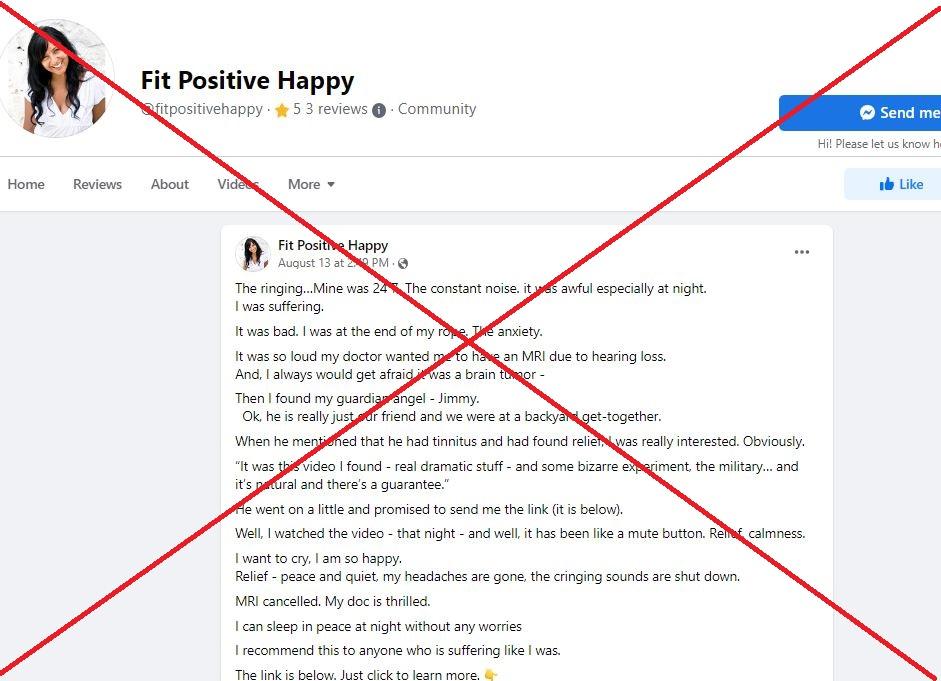
Posts tout unproven tinnitus cures
"Relief - peace and quiet, my headaches are gone, the cringing sounds are shut down," says an August 13, 2022 Facebook post that links to a website selling supplements.

Other Facebook posts also claim a dietary supplement called "Quietum Plus" can treat tinnitus, which can be acute or long-lasting -- and in some cases debilitating. One post says "experts at the Mayo Clinic have developed a new drug to prevent and treat tinnitus and have begun to market it," linking to a website promoting CBD gummies.
But medical experts say the claims are false and that no drug or supplement has been approved to treat tinnitus, which in some cases is associated with partial hearing loss.
"Mayo Clinic has not developed a new drug to prevent and treat tinnitus," a spokesperson for the academic medical center told AFP in an email.
While there is no cure, the Mayo Clinic says on its website that some techniques -- such as white noise machines and counseling -- may help patients cope with tinnitus. In some cases, the center notes, drugs may help treat an underlying condition or tinnitus-associated anxiety.
Douglas Backous, a neurotologist in Edmonds, Washington, who treats patients with hearing disorders, said tinnitus can have a wide range of causes, including tumors or brain injuries. The condition is believed to affect millions of Americans, with some cases resulting from loud noises or injury.
"Tinnitus is really a symptom, it's not a disease. It can occur with a lot of other problems," Backous said, noting that sometimes the condition's cause is unclear.
Some tinnitus cases may require surgery or other interventions. Backous said alternative or complementary treatments may help, but a medical exam should be a patient's first step.
"We're not shooting for a cure -- we’re trying to help people cope with tinnitus," he said.

The American Academy of Otolaryngology-Head and Neck Surgery says serious tinnitus cases can be treated with counseling, sound therapy and cognitive behavioral therapy. But the guidelines specifically caution against dietary supplements.
"Studies show that products such as Ginkgo biloba, melatonin, or zinc do not help patients with tinnitus," the professional association says. "Therefore, these types of over-the-counter products are not recommended for treatment."
The guidelines add that many of the supplements, which are not regulated by the US Food and Drug Administration (FDA), have "varying amounts of the 'active' agent" and that there is little study on "potential drug interactions and adverse events."
As for CBD, a 2015 study found the cannabis-derived chemical offered no benefit in treating tinnitus. Backous said there is some anecdotal evidence that CBD could help assuage symptoms, but that the compound may affect people differently.
AFP has fact-checked other false and misleading claims about the health benefits of CBD and dietary supplements here, here and here.
Copyright © AFP 2017-2026. Any commercial use of this content requires a subscription. Click here to find out more.
Is there content that you would like AFP to fact-check? Get in touch.
Contact us
